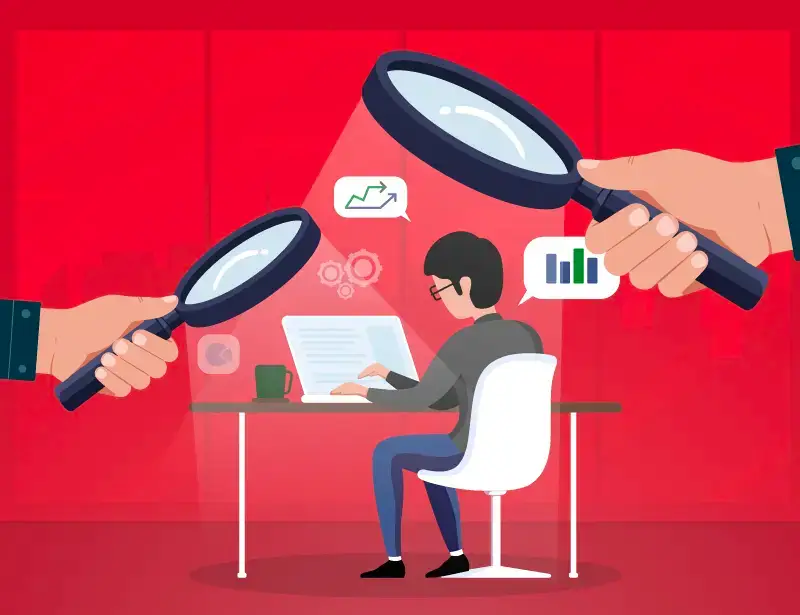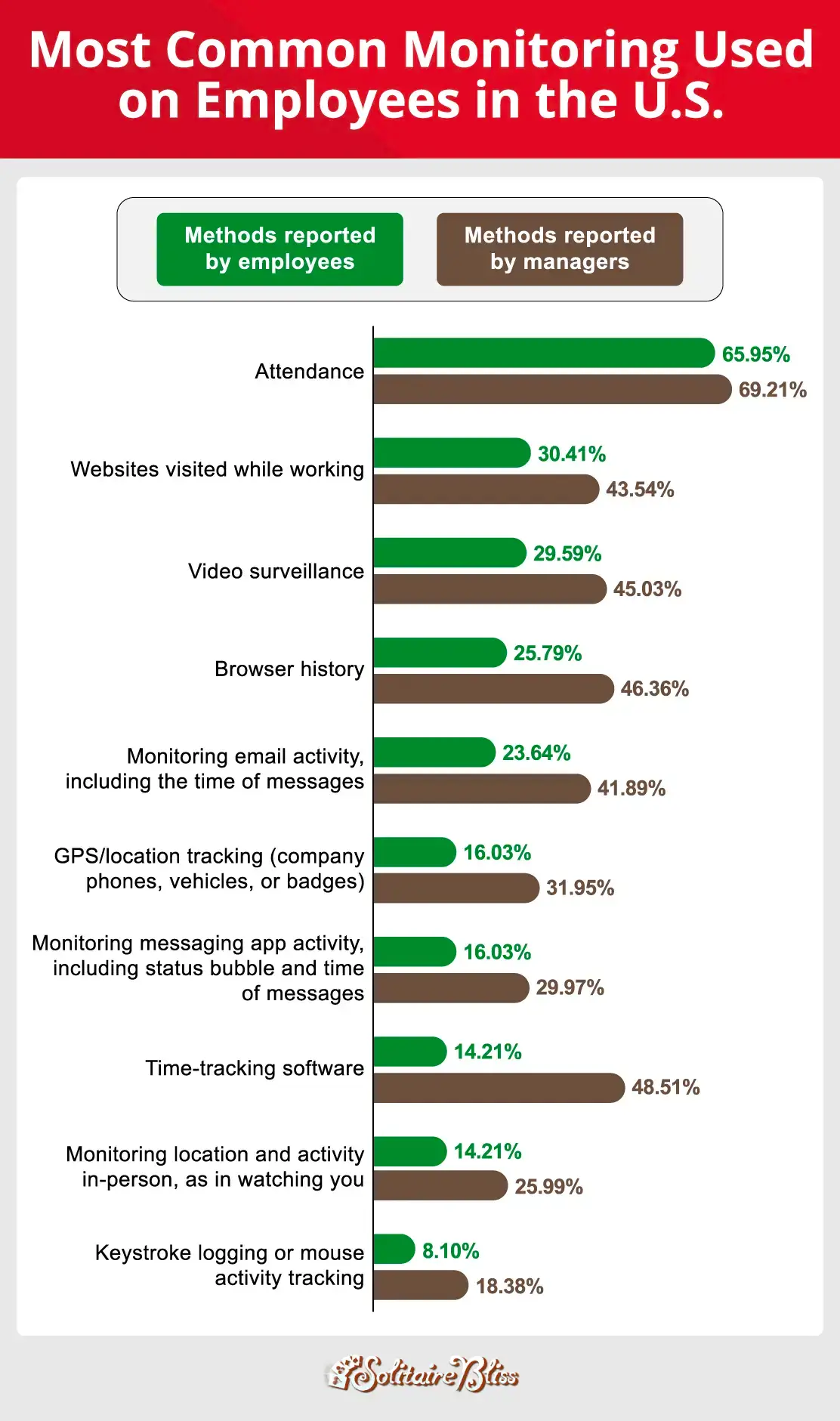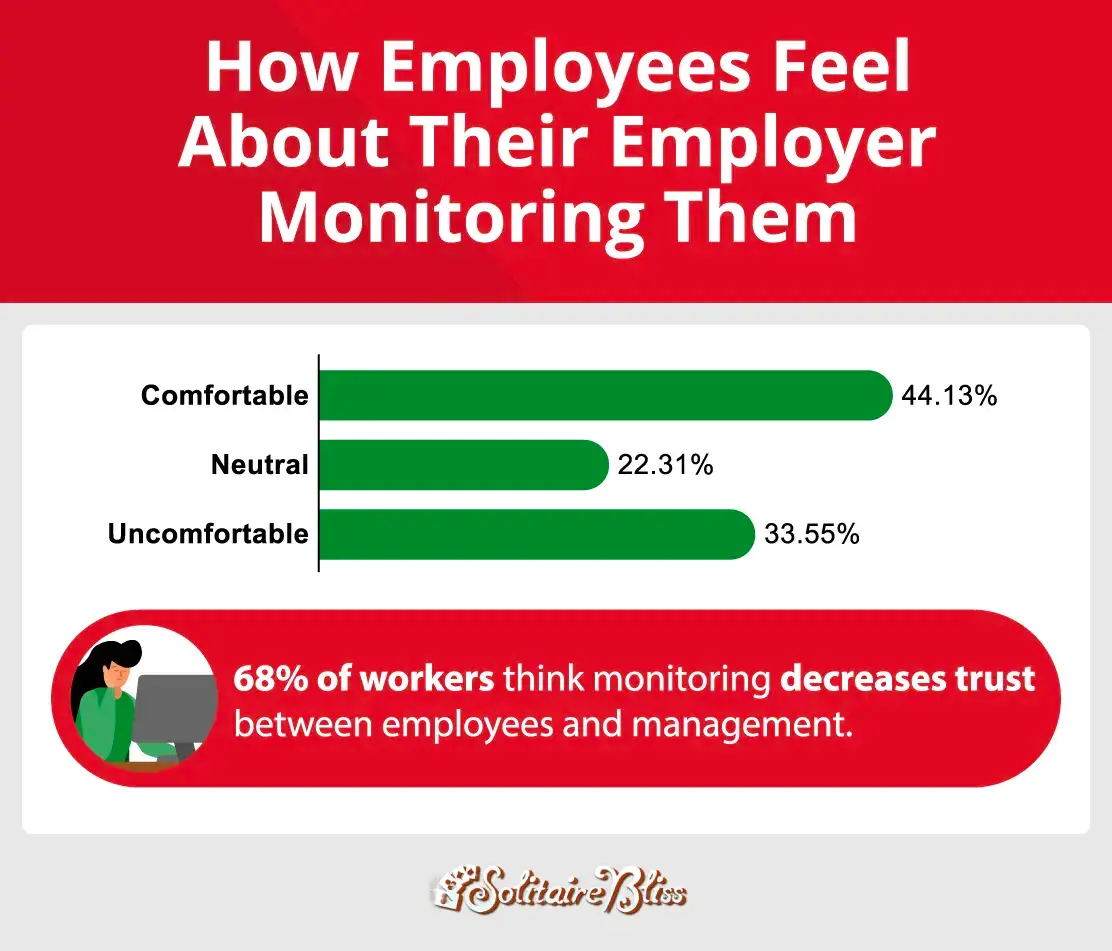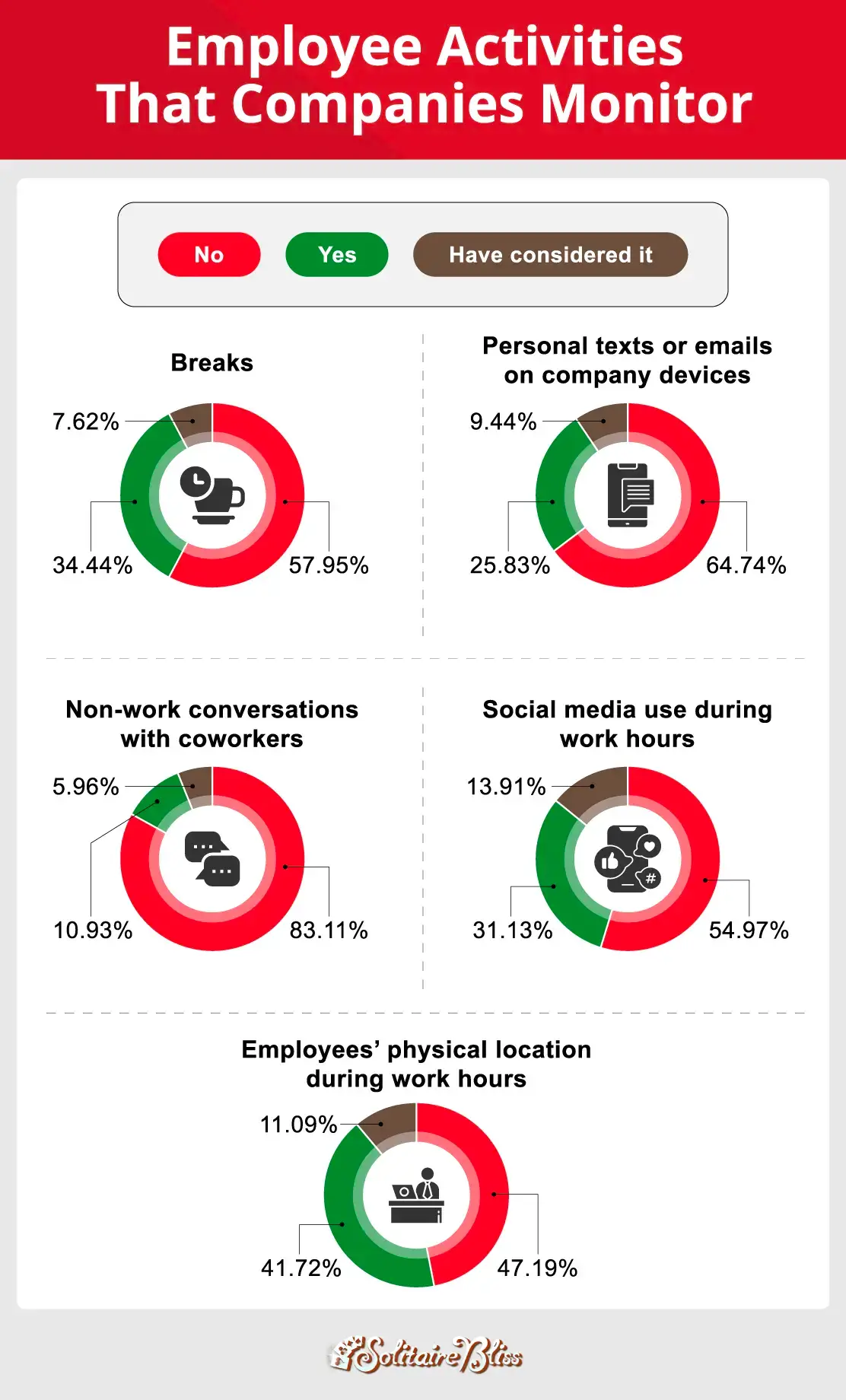Report: 95% of Managers Say Their Company Monitors Employees

Have you ever felt like someone was watching over your shoulder at work, especially when you’re taking a break and playing solitaire at your computer? Well, it’s possible they really were.
Whether working remotely or in an office space, many workers across America have shared experiences of their company monitoring them while they work—some have even shared reports of being monitored when off the clock.
Because of this, the team at Solitaire Bliss set out to learn more about both sides of employee monitoring. To do this, we started with workers and asked about their experiences, both suspected and known cases of monitoring. Then we surveyed managers to gain insight into practices and how higher ups feel about employee monitoring. Read on to learn more about our findings.
Key Takeaways
- Nearly 1 in 5 Americans say their employer is not transparent at all regarding their monitoring practices.
- More than a third of Americans say they are uncomfortable with their employer monitoring them.
- 68% of workers think monitoring decreases trust between employees and management.
- 76% of Americans say they would agree to be monitored more at work if in exchange they were paid significantly more money.
- Nearly 1 in 5 Americans admit they have tried to evade being monitored at work in some way.
- 95% of managers say their company monitors employees.
- Of those who monitor, 56% of managers believe monitoring has improved employee productivity.
Types of Monitoring Used in Workplaces

Our data shows that not all companies are transparent about their methods of monitoring. When asking workers about their employer’s transparency, nearly 1 in 5 people said their company doesn’t share any details. We then asked managers the same question and found of those who monitor, 38% say their company is only somewhat transparent regarding their practices.
So we asked both workers and managers about monitoring methods to see which are more common and which ones employees may overlook. And we discovered a common theme in analyzing this data—compared to employees reporting their awareness of the monitoring, a higher percentage of managers reported monitoring methods, showing the lack of transparency some companies have regarding these practices.
Attendance tracking ranked first for both groups with 66% of workers knowing it is tracked and 69% of managers reporting their company monitors it. Employees placed website tracking high on the list of monitoring methods they recognized, ranking it second overall, with 30% of employees saying their employer monitors it. Compared to managers, 44% reported this method of monitoring.
While 30% of workers report their employer uses video surveillance to monitor their staff, 45% of managers note the usage. Similarly, 1 in 4 people say their company keeps track of workers’ browser history, and nearly 1 in 2 managers report the same.
These monitoring methods are not always effective, however, as some Americans admit to finding ways around the watchful eye of their boss. Overall, nearly 1 in 5 workers say they have tried to evade monitoring in some way, while nearly 1 in 3 admit they have falsely given the appearance of being at work or being productive when they weren’t. On the other hand, of those who monitor, 56% of managers believe their tactics have improved employee productivity.
Americans’ Views on Employee Monitoring

The feeling of being watched can leave some people feeling a bit uneasy, and 68% of workers believe that monitoring decreases trust between employees and management. Beyond trust, more than a third of employees say it makes them uncomfortable.
On the other side, however, 44% say they are comfortable with being monitored, and 22% of people are neutral. At the end of the day we found that money can play a large role in employees’ feelings as 76% say they would agree to be monitored more at work in exchange for significantly more money.

Perhaps the discomfort with monitoring is rooted in employers tracking tasks unrelated to work. Overall, 42% of managers say their company monitors their employees’ physical location during work hours. Additionally, more than a third of managers report tracking workers’ breaks.
Your personal tasks on company time may also be monitored at your job, too, as we discovered 1 in 3 managers say they monitor social media usage during work hours. Similarly, 1 in 4 track personal texts or emails on company devices, and 1 in 9 monitor non-work conversations with coworkers.
While monitoring tactics vary from one company to another, we found that of those who say their company monitors, 81% of managers say they are monitored in the exact same ways that people they manage are monitored.
Save Solitaire for When You’re off the Clock
Work can be stressful. And while you may want to take a few moments away from your assignments to relax and play a game of Solitaire, it is important to remember that your manager could be watching your activities while on the clock. And playing a game rather than focusing on that report could have negative consequences.
At Solitaire Bliss, we encourage you to take time on a break to play a game of FreeCell, Spider or Crescent Solitaire, but stay focused on your work while on the clock. Our free games will be waiting for you once you step into the break room or head home for the day.
Methodology
In this study, we set out to learn about employee monitoring at U.S. companies. To do this, we surveyed workers across the country regarding the monitoring they think or know about at their company, their opinions regarding it, and more. We then surveyed managers regarding their company's monitoring methods, how it has impacted productivity, and more. We then analyzed these responses to determine trends in monitoring and which types are most common in the workplace.
Back to the Homepage

